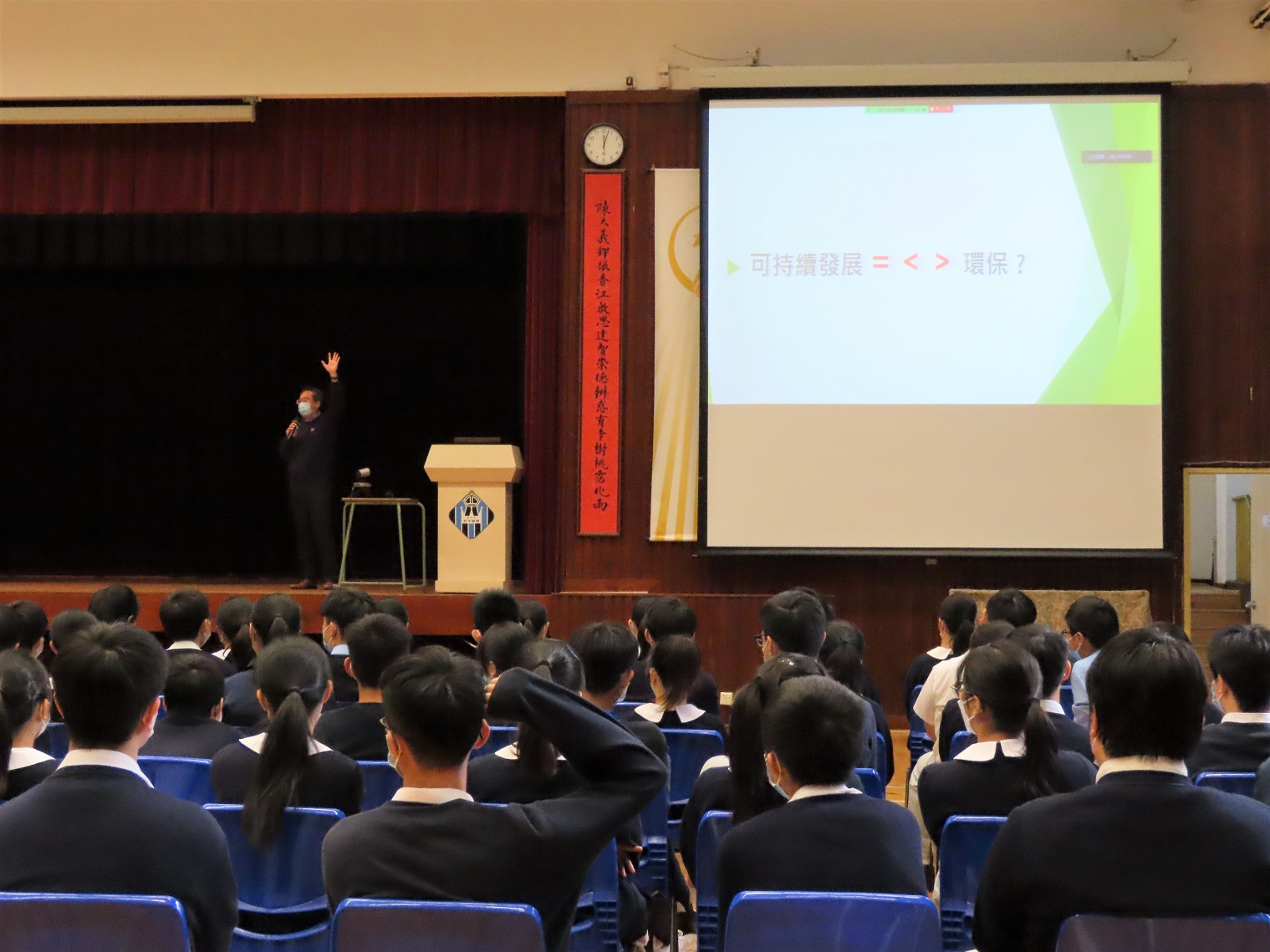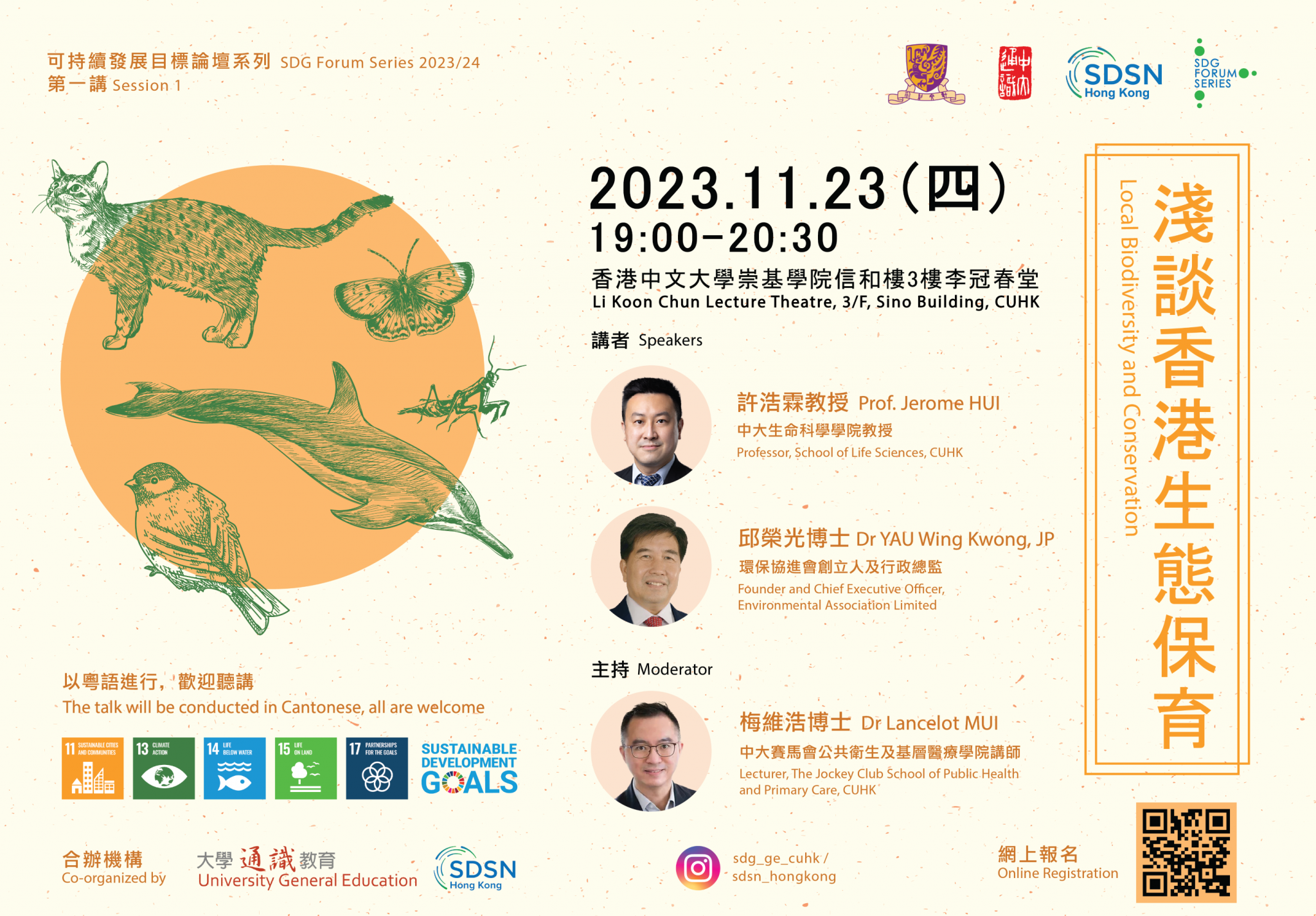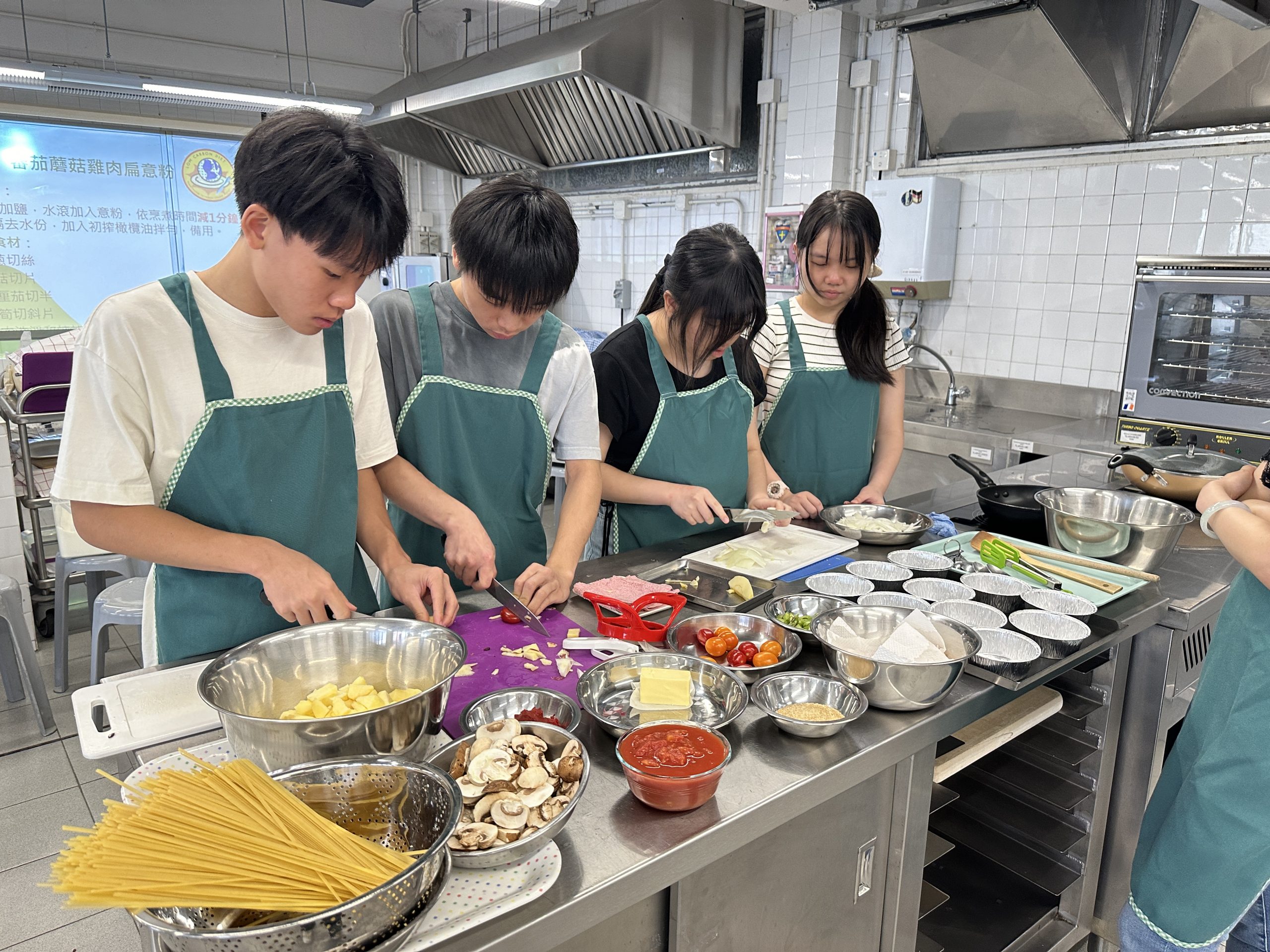Education for Sustainable Development
CUHK prides itself on its dedication to education. To meet the challenges of tomorrow, CUHK is committed to nurturing graduates who are globally ready, able to cross knowledge boundaries, and aspire to become competent leaders and make lifelong contributions to society. This is done through our full spectrum of education, from professional and continuing education to non-formal education programmes, and from formal postgraduate to undergraduate programmes. Our well-balanced undergradate curriculum is anchored by an award-winning General Education curriculum, which fundamentally equips students with the intellectual capacity for understanding critical issues, ideas and values of humanity in modern society.
Education is central to CUHK’s vision and mission and must work in tandem with research and student experience. Supporting these academic and student development activities are CUHK’s core values of openness, civility and a culture of inclusivity. These principles are vital for ensuring a safe and welcoming environment for all members of the CUHK community and for serving as a standard for our personal and collective behaviour. CUHK and all members of the CUHK community pledge to defend the right to academic freedom, including the right to free speech and free expression, provided that the exercise and preservations of these rights lies within the bounds of responsibility, integrity, civility and legality (more information: Diversity and Inclusion Policy and Policy on Research).
Addressing sustainable development and the SDGs

CUHK Jockey Club Musuem of Climate Change offers seminars to local schools on SDGs and climate change
The University runs different courses and education programmes that address sustainability and the SDGs for the students. These include the SDG Study Scheme by the Office of University General Education, projects funded by the Sustainable Development Goals Action Fund, courses offered by the Department of Geography and Resource Management, and the Urban Studies Programme.
We also provide local education programmes or campaigns on climate change and related issues. The Jockey Club Museum of Climate Change offers interactive, multimedia exhibitions that showcase valuable collections and information about climate change. The Mobilizing Community Climate Action by Future Museum Curators offers climate change education to secondary school students through hands-on exhibition curation. The online course Climate Change and Health provides an overview of issues related to climate change and public health. The joint project on Extreme Hot / Cold Weather is an interdisciplinary research to study the impacts of extreme weather on senior citizens and also provides education campaigns on climate change risks. The Research Café on Carbon Neutrality features a wide spectrum of studies by postgraduate students at CUHK that address various aspects of carbon neutrality, or net-zero greenhouse gas emissions, for managing climate risks.
A Portal for public education

[SDG Forum Series 2023–24] Local Biodiversity and Conservation
CUHK provides free access to educational resources, including its library, and online sharing and courses, e.g. CUHK Massive Open Online Courses (MOOCs), Knowledge and Education Exchange Platform (KEEP) and CUTV for the general public. We also organize online courses available for those not studying at the university, including civil servants, frontline practitioners, and students of closely-related disciplines. Typical examples include the online courses Climate Change and Health and Disaster and Medical Humanitarian Response provided by the Collaborating Centre for Oxford University and CUHK for Disaster and Medical Humanitarian Response (CCOUC), which will issue a certificate to the participants who pass the final assessment.
To promote and facilitate lifelong learning, the University regularly organizes public lectures and community educational events, e.g. online talks and resources on CUTV’s ‘Class Acts’ Online Talk Series and webinars: SDG Forum Series, ORKTS webinar series, and the public lectures run by the faculties and departments. We also organize executive education programmes that are open to the general public. Examples include the Cross-Border Legal Issues Dialogue Seminar Series, organised by the Faculty of Law, the Executive Education Programme, run by the Asia-Pacific Institute of Business, and part-time programmes offered by the School of Continuing and Professional Studies.
Reaching out to the community and different sectors

Environment and Conservation Fund ‘The Easy Climate-Friendly Diet’
We also organize educational outreach activities that are related to various SDGs beyond campus
- for alumni, e.g. the Alumni Affairs Office keeps alumni posted all local and overseas activities relevant to various SDGs on its webpage and online bulletin
- in local schools, e.g. a CUHK Jockey Club AI for the Future Project since 2019 for the city’s junior secondary school students to equip them with AI knowledge; Environment and Conservation Fund (ECF) ‘The Easy Climate-Friendly Diet’ to promote a change of behaviour around sustainable diet and food-related habits to reach for a carbon-neutral society; SDG Ambassadorship to improve secondary school students’ understanding of the SDGs and train them to create an SDG action plan for their schools;
- in local community, e.g. the Community Health And Multi-disciplinary Partnership Interprofessional Outreach Network (CUHK Champion) by the Faculty of Medicine has served over 20,000 citizens in Hong Kong; the Community Caring Day cum Alumni Carnival by the Nethersole School of Nursing organized various activities such as talks and personal health counselling conducted by volunteers including CUHK alumni and students (nursing and gerontology); and the CUHK Jockey Club AI for the Future Project jointly run by CUHK and the local secondary schools to offer AI studies to around 8,000 secondary students; and
- for various underprivileged, such as asylum seekers, ethnic minority, migrants, homeless in Hong Kong, there are different community projects run by the students and staff members with the support of University’s SDG Action Fund e.g. a community health screening and education campaign partnered with 2 NGOs in two districts to serve the homeless population
We also provide upskilling training and education for policy- and law-makers, e.g. Cross-Border Legal Issues Dialogue Seminar Series offered by the Faculty of Law for practitioners, academics, the business community and the general public to engage in a dialogue on cross-border legal issues; and the Master in Public Policy Programme offered by the School of Governance and Policy Science to support current and aspiring policymakers to build the capacity of considering different points of view with an interdisciplinary perspective to achieve an optimal policy outcome.
The University has established the Hong Kong Institute of Asia-Pacific Studies, which aims to broaden the intellectual horizon of policymakers and develop policy alternatives for the community; and to serve as a think-tank for the Hong Kong government, the Chinese government, and policymakers in the public and private sectors.
PREVIOUS
A Caring Employer
NEXT
Climate Action and Resource Conservation

